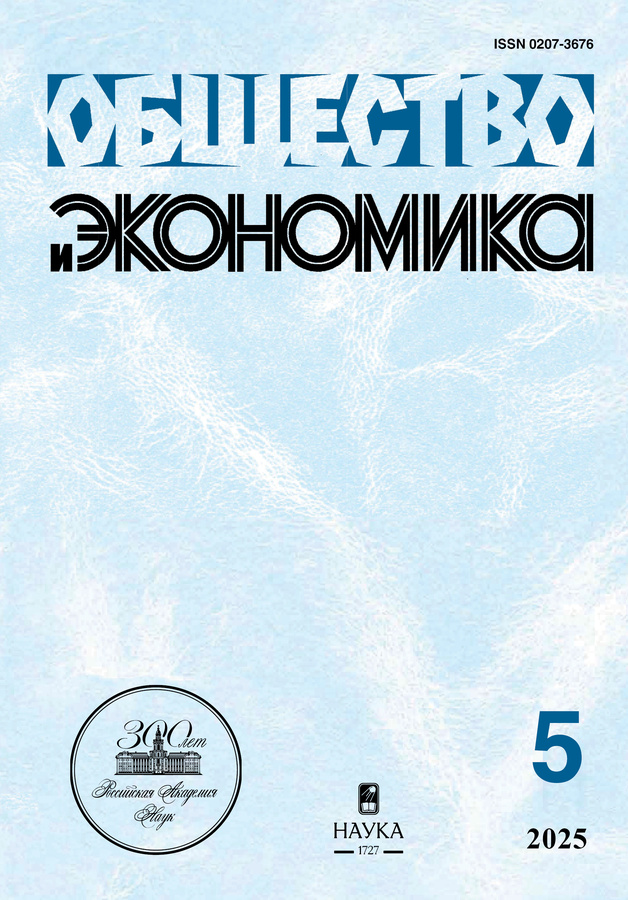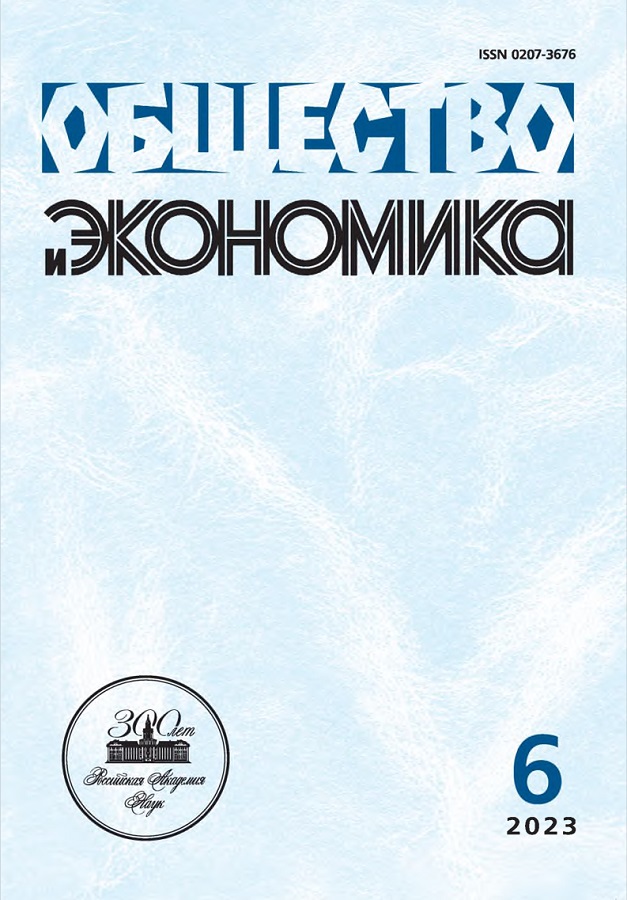Восприятие неравенства населением и объективные его показатели в странах мира: есть ли взаимосвязь?
- Авторы: Салмина А.1
-
Учреждения:
- Российская академия народного хозяйства и государственной службы при Президенте РФ (РАНХиГС)
- Выпуск: № 6 (2023)
- Страницы: 78-89
- Раздел: Статьи
- URL: https://freezetech.ru/0207-3676/article/view/671571
- DOI: https://doi.org/10.31857/S020736760025990-8
- ID: 671571
Цитировать
Полный текст
Аннотация
По данным некоторых эмпирических исследований, с запросом людей на сокращение неравенства сильнее коррелирует именно субъективное восприятие неравенства, а не фактическая его глубина в стране. Учет воспринимаемого неравенства дает возможность принять во внимание критику существующих подходов оценки объективного неравенства и направить дискуссию о проблемах неравенства в продуктивное русло. В связи с этим изучение взаимосвязи объективного неравенства и субъективного его восприятия представляется одной из перспективных задач. В данной статье с использованием данных Европейского социального исследования (ESS) проведен сравнительный анализ отношения россиян к неравенству и его взаимосвязи с объективными показателями неравенства. В отличие от предыдущих исследований, помимо коэффициента Джини и децильного коэффициента, в анализ включены индикаторы, отражающие другие аспекты неравенства.
Ключевые слова
Об авторах
Алла Салмина
Российская академия народного хозяйства и государственной службы при Президенте РФ (РАНХиГС)г. Москва, Россия
Список литературы
- Bussolo M., Torre I., Ferrer-i-Carbonell A. I Perceive Therefore I Demand: the Formation of Inequality Perceptions and Demand for Redistribution // World Bank Policy Research Working Paper. 2019. No. 8926.
- Bussolo M., Peragine V., Sundaram R. Toward a New Social Contract: Taking on Distributional Tensions in Europe and Central Asia. Europe and Central Asia Studies; Washington, DC: World Bank. 2018. URL: https://openknowledge.worldbank.org/handle/10986/30393
- Engelhardt C., Wagener A. Biased Perceptions of Income Inequality and Redistribution. CESifo Working Paper Series. 2014. No. 4838. URL: https://ssrn.com/abstract=2463129
- Fernández-Albertos J., Kuo A. Income Perception, Information, and Progressive Taxation: Evidence from a Survey Experiment. Political Science Research and Methods. 2018. No. 6(1). P. 83-110. URL: doi: 10.1017/psrm.2015.73
- Gimpelson V.E., Treisman D. Misperceiving Inequality. Economics and Politics. 2018. Vol. 30. No. 1. P. 27-54.
- Norton M.I., Ariely D. Building a Better America – One Wealth Quintile at a Time. Perspectives on Psychological Science. 2011. No. 6(1). P. 9-12. URL: https://doi.org/10.1177/1745691610393524
- Капелюшников Р.И. Неравенство: как не примитивизировать проблему // Вопросы экономики. 2017. № 4. С. 117-139.
- Капелюшников Р.И. Экономическое неравенство – вселенское зло? // Вопросы экономики. 2019. № 4. C. 91-106.
Дополнительные файлы











